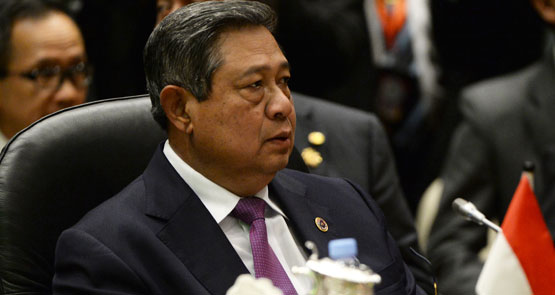
Australia’s diplomatic relationship with Indonesia has gone from bad to worse following the latest damaging revelations about Australian spying on senior Indonesian political figures, including President Susilo Bambang Yudhoyono and his wife Ibu Ani. Indonesia is now expected to act on the matter, expelling Australian diplomats and suspending joint information gathering programs.
The most troubling aspect of this issue is the Australian government’s failure, so far, to attempt to neutralise the damage that is being caused to the relationship. This is despite Prime Minister Tony Abbott, describing Australia’s relationship with Indonesia as “all in all, our most important”.
Yet despite this affair now running over two weeks, there has been no action taken to settle it. Had the Australian government acted when the first spying claims were made, this latest issue of top level spying would have already largely been addressed.
However, Mr Abbott’s comments that all countries gather intelligence, though accurate, will be viewed as dismissive in Indonesia and adding insult to injury. This is at a time when Mr Abbott needs to apologise, in public, to the Indonesian leadership, and not as an unconcerned leader to the Australian public.
The revelation that Australia Defence Signals Directorate has tapped the phone of President Yudhoyono and his wife Ibu Ani is particularly embarrassing to Indonesia, given that President Yudhoyono has invested a great deal of political capital in the relationship. There have long been many politicians in Indonesia who have viewed Australia with a much more jaundiced eye than Yudhoyono. They will now be feeling vindicated, and Yudhoyono will have lost face.
With the Australian spying issue being played out in Indonesia against the backdrop of next year’s elections, Australia has further made itself an easy target for political point scoring. A strong and defensive sense of national pride has long characterised political debate within Indonesia, with Australia regularly singled out as a country with a history of offending that sensibility.
But even moderate political actors in Indonesia will feel compelled to take a strong stand against Australia. Not to do so will be seen domestically as having abandoned Indonesia’s sense of sovereignty.
In the short term, the expulsion of some diplomatic staff and the suspension of bilateral programs will cause problems, especially to Australia’s asylum seeker program. But the longer term fall-out could be at least as damaging.
Because Australia has not yet moved to assuage Indonesian concerns, Australian spying can be expected to resurface each time the issue of the bilateral relationship is raised in Indonesia. Each time a proposal is put forward about closer diplomatic, intelligence or strategic ties, the spying issue will be inserted as a consideration.
Australia will not, and probably cannot, substantially reduce its intelligence gathering activities in Indonesia. But it remains possible to at least give a public rhetorical semblance to a review of such activities. This would go a long way towards calming the growing anger that is being expressed in Jakarta.
Australia’s previously troubled relationship with Indonesia has, in recent years, been described as the best that it has ever been. It has been widely viewed as critical to secure the strength of that relationship as Indonesia heads into a new, post-election political environment. That intention, however, now appears to have been dashed.
At best, Australia can look to salvage what is left of the relationship. To do that, however, it must start taking public diplomatic steps in that direction.
*Professor Damien Kingsbury is Director of the Centre for Citizenship, Development and Human Rights at Deakin University.








The Slogan Bogan has just given Indonesia another stick to beat Oz with. Oz-bashing is a popular political activity in Indonesia, especially in an election year.
Any nation that thinks this sort of thing is not done by other nations is a bit naive.
Tony Abbott appears incapable of apologising, regardless of the national interest. Reminds me of John Howard. I like to think Australia deserves better, yet here we are.
In my opinion they should apolgise fast and let the dust settle.. I can’t see much point in allowing tensions to get worse
Say “sorry, it won’t happen again”, like Obama did with Angela Merkel. You wonder why it is so hard for Abbott.
You’d think with his ‘stop the boats’ imperative on the line the pragmatist in him would win out. Especially after seeing what he was willing to do for Sri Lanka’s help.
“Every country does it”. Which country “does it”? Any evidence that this is so (apart from the USA)? If you’ve no evidence of any spying then you’re position becomes even weaker.
“Everybody steals, therefore it is OK for me to steal as well”.
Who steals? Any evidence that would be upheld in a court of law? If not then you’re going to be called an untrustworthy thief.